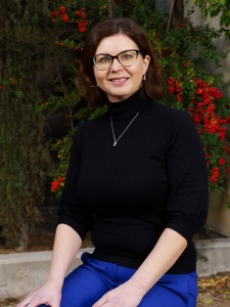
office hours
Dr. Veronika Williams received her Ph.D. in Second Language Acquisition and Teaching in 2016 and her MA in Russian Studies in 2010 from the University of Arizona. Her doctoral research focuses on learner autonomy in language learning; specifically, the effectiveness and the benefits of targeted learner autonomy training for language learners. Other areas of interest include methodology in Russian language teaching, intercultural competence, and intersection of Russian language and culture. Recently, Dr. Williams worked on cultural aspects of Russian rap.
In addition to teaching at the department, Dr. Williams serves as a Director of the Russian Basic Language Program and works closely with Graduate Teaching Assistants to ensure excellence in Russian language teaching.
Courses Taught
RSSS 101 and 102 - Elementary Russian I and II
RSSS 150 B1 - Eastern European Cinema in a Social Context
RSSS 150 B2 - Multicultural Russia
RSSS 160 C2 - Contemporary Russia in a Historical and Global Context
RSSS 210 - Utopian Visions
RSSS 301 and 302 - Advanced Grammar and Composition I and II
RSSS 306 - Russian Rap
RSSS 308 - Communicating in a Cultural Context
RSSS 315 - Vampires and Werewolves: Slavic and East European Folklore in Our Culture
RSSS 415 / 515 - Advanced Topics: Structure of Russian

